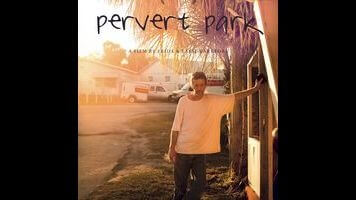There’s no call to action at the end, no URL to visit. All the same, Pervert Park is an advocacy documentary. It’s advocating for a deeply unpopular cause: the granting of a voice, and maybe even a sliver of empathy, to society’s most detested pariahs, its convicted sex offenders. Named for a trailer park in the Tampa Bay area that more than a hundred ex-cons—many of them imprisoned for crimes against children—now call home, the film treats these former convicts like people, not like monsters beyond comprehension. That may not seem like a radical notion, but the proof that it’s a controversial one is right there in the movie’s production roots: Despite its Florida setting, Pervert Park has been directed by a pair of Scandinavian filmmakers, Frida and Lasse Barkfors, and its funding came chiefly from Swedish and Danish film institutes. American backers wanted to be involved in this project about as much as the average person wants its subjects living in their neighborhood.
Made up almost entirely of interviews, Pervert Park examines, with little judgment, the isolated daily lives of several men (and one woman) residing at the Palace Mobile Home Park, situated far enough from any school to make it a destination for those legally prohibited from moving elsewhere. In deciding who to speak to, the Barkfors seem to have sought out a spectrum of rap sheets, presumably to demonstrate the wide range of transgressions covered by the sex offender label. Some of the interviewees, like a man imprisoned for the kidnapping and rape of a child, have committed crimes so heinous that they challenge any capacity to forgive. But can the same can be said for the college student busted in an online sting operation, wherein an undercover cop convinced him to talk dirty about an underaged girl? Without issuing any condemnation, Pervert Park questions a system that creates public-eye equivalency between pedophiles and, say, flashers.
Operated by Florida Justice Transitions, the trailer park itself provides not just shelter, but also a makeshift community. Occupants adhere to strict curfews and guest policies, and many participate in group counseling sessions designed to help them integrate into life outside of prison. (The closest Pervert Park comes to an audience surrogate among this collective of damaged, damaging people is the therapist Don, who got into helping the abusers when he realized how important that was to so many of the abused.) All of this seems to have created an environment of self-reflection and repentance. “Accepting responsibility becomes probably the single most important thing that people in my situation can do,” says one subject, and Pervert Park reflects that sentiment in the blunt, often painful confessionals it captures. The most wrenching of these interviews is probably the one conducted with Tracy, who recounts being molested as an infant, before tearfully disclosing how she passed that trauma on to her preteen son. It’s heavy stuff, somehow made even more difficult to watch through the implicit compassion of the filmmakers.
Whether there’s such a thing as too much compassion is a bigger question. As brutally honest and haunted by guilt as these struggling ex-convicts are, most can’t resist a little rationalization, as when Tracy explains that she only abused her child because the man who asked her to insisted that he would help them financially if she complied. For some, the filmmakers’ sympathies may seem uncomfortably misplaced. Shouldn’t we mostly feel sorry for the victims, not the perpetrators? That is one of the film’s likely points, powerfully conveyed through the repeated revelation of a cycle of abuse: In many cases, the perpetrators were victims, too. Pervert Park never demands forgiveness, only an attempt to understand and to maybe see where these dark impulses come from. Because while banishing sex offenders from sight and mind might create a sense of security and even moral satisfaction, it won’t stop another generation of predators from taking their place.










![Rob Reiner's son booked for murder amid homicide investigation [Updated]](https://img.pastemagazine.com/wp-content/avuploads/2025/12/15131025/MixCollage-15-Dec-2025-01-10-PM-9121.jpg)

























![HBO teases new Euphoria, Larry David, and much more in 2026 sizzle reel [Updated]](https://img.pastemagazine.com/wp-content/avuploads/2025/12/12100344/MixCollage-12-Dec-2025-09-56-AM-9137.jpg)




